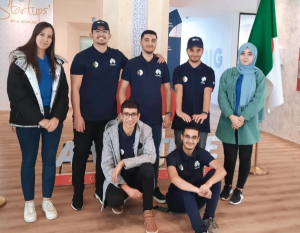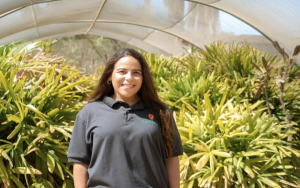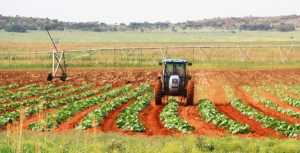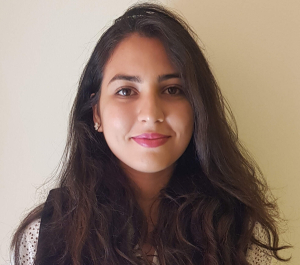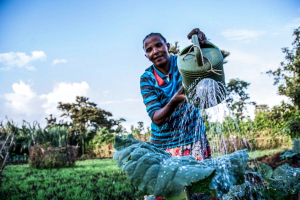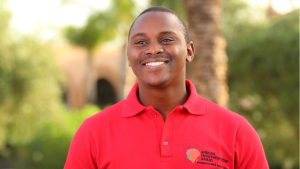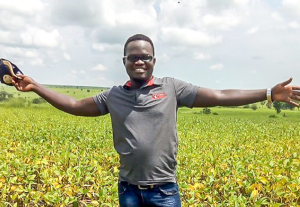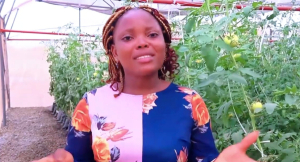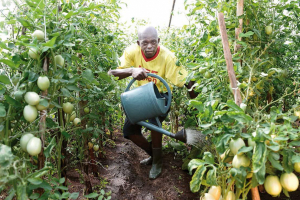SevenG advocates for smart, dynamic, and efficient farming with FarmAI
On January 5, 2023, Algerian team SevenG won the second prize in the finals of the global competition organized by Huawei. It won the prize thanks to its AI tool that automates farming. At a time when food insecurity is hanging over millions of people all over the world, the seven students who launched the tool believe that it is an efficient and less restrictive solution to make farming more profitable. In an interview with We Are Tech, they present their ambitious project.
What inspired you to launch FarmAI?
We were inspired by the food insecurity affecting Algeria and several countries in the world. We decided to develop an IT system, combined with other tools, which would help create a smart farm, monitor crops, identify pests, build a smart irrigation system, and monitor weather changes. The main idea is to quickly detect and efficiently respond to diseases affecting farms.
How does your solution work?
The early wheat rust disease detection system combines artificial intelligence and drones to monitor wheat fields. The drone flies around the field every 4 days, capturing images of the plants with its camera. This data is then transferred to a deep neural network that performs image classification and analysis to identify possible infections. If a set of data points at a high infection probability, the system will alert the farmer through a mobile app and backend system, allowing the farmer to take the necessary actions to preserve crops and avoid financial losses.
We already have audiences with the Ministries of Economy and Agriculture. They will help us either partner with local drone manufacturers or purchase our drones. In both cases, the great support offered by the President of the Republic to agritech and startups is a real opportunity.
Why did you choose artificial intelligence to power your solution?
We didn't choose to use artificial intelligence (AI) because it's a trendy technology or something like that, but our problem requires a lot of effort, time, and money. So, as we all know, AI improves the speed, accuracy, and efficiency of human actions. Those are the reasons we chose AI for our FarmAI project. At this stage, we are using AI in two key functions which are computer vision and the automation of drones that monitor farms, process images and classify them.
Given the potential of artificial intelligence, why limit the solution to the identification of wheat rust only?
At the beginning of the Tech4good competition, our idea was to develop a system that would help reduce losses in farms and ensure food security in our country. But, as we were time-limited and our project was focused on a specific feature, which is the detection of rust disease, even before the competition, our mentors advised us to pursue this feature. Nevertheless, we plan to add other features, including pest detection and the detection of other diseases. We plan to deploy our solution in more farms.
Our focus on wheat rust stems from the position of wheat in the Algerian economy. Algerians consume more than 100 kilograms of wheat yearly. The country produces and exports the commodity, which is a great source of income for households and the whole country. Our solution helps address food and economic issues not only in Algeria but also in the whole world.
What are SevenG's plans for FarmAi after Tech4Good?
The next step is to test our solution. We have already spoken with farmers and most of them are interested. The solution has been developed in such a way that it is easy to use even for non -tech-savvy individuals. Since most farmers are already using smartphones, they only have to check the reports since everything that has to do with drone calibration, launch, and data analysis is automated.
Once we are done with the testing phase, we will offer free trials to farmers to convince them of the usefulness of our solution. Then, we will seek investors to quickly develop our business and get more clients.
Egypt: Farah Emara dynamizes the agricultural value chain with FreshSource
She is a passionate entrepreneur who wants to give back control over the entire food value chain to significantly reduce crop losses in Egypt. With her brother, she developed a tech solution for that purpose.
Farah Emara (photo) is the CEO of Egyptian agritech startup Freshsource, which she launched with her brother Omar Emara.
Her startup leverages data and tech tools to transform the lives of producers, businesses, and consumers by creating sustainable food systems. It was launched after its two co-founders realized that in Egypt, food security is jeopardized because close to 30% of crops are lost due to poor post-harvest, storage, and transportation conditions. They also noticed that the high number of intermediaries in the supply chain and the lack of transparency generate an about 80% income shortfall for farmers.
Therefore, with over 80 employees, the startup launched in Cairo, in 2018, manages the entire fresh food value chain, including transportation, storage, and packaging in cold storage and appropriate facilities. It buys from farmers at consistent prices and sells the products at reduced rates. Nowadays, it serves clients in 11 cities in Egypt, with the aim of becoming the leading agricultural supply chain platform in the Middle East and North Africa region and changing the way fresh produce is bought, transported, and sold. It has already transported more than 10,000 tons of produce and claims over 1,000 deliveries weekly.
"FreshSource is disrupting the Egyptian agriculture industry by streamlining the value chain through technology. We are the region’s first B2B platform for fresh fruits and vegetables, connecting producers to businesses by leveraging data and technology and providing last-mile solutions," Farah Emara said in 2022.
Before founding FreshSource, between 2012 and 2016, she worked for Endeavour, a global community of high-impact entrepreneurs, as an entrepreneur selection and growth analyst and then as an entrepreneur selection and growth manager. In March 2016, she joined the consumer goods company Procter & Gamble where she worked as a Strategic Business Manager for the Middle East until 2018.
Let's note that her startup is among the 14 businesses selected for the 2023 Africa Tech Summit (February 15-16). In 2022, she received the Digital Agriculture Award of the year, issued by the World Bank and the IFC.
Melchior Koba
Egypt: Mahaseel Masr connects fresh produce farmers with buyers
The solution aims to help farmers and fresh produce farmers quickly sell their products while ensuring farm traceability.
Mahaseel Masr is a digital solution that connects farm owners with buyers looking for fresh products. According to Mohamed Abdel Rahman, founder of the startup behind the app, "demand for first-rate fruits and vegetables at competitive prices is showing strong growth, driven by a global rapid population increase and raised digital awareness, in addition to a demanding need for global supply chain stability." Therefore, the solution wants to facilitate secure and reliable transactions while ensuring farm traceability.
Through its Android app, the solution allows buyers and sellers to create their accounts and carry out business transactions. Buyers must type the product they need into the search bar and choose the farms offering such products depending on the location.
Mahaseel Masr claims more than 28,000 member farms and more than a million tons of crops harvested and sold. On Play Store, its Android app has been downloaded more than a hundred times.
Adoni Conrad Quenum
Iwolonet, the social network for agribusiness professionals
Agriculture is the main sector in most African countries. Tech entrepreneurs are stepping in to improve living conditions in this vital sector of the concerned economies.
Iwolonet is a digital solution developed by a Cameroonian startup. It is a business space where farmers can showcase their products online to attract buyers.
Via its Android app, farmers can register to access its services. They can also do so via its web platforms.
With their account, they can post their products, see the products posted by other users and connect with buyers and suppliers.
On Playstore, the app has been donloaded more than 10,000 times. Users present on the platform inlcude international companies, cooperatives and associations.
Adoni Conrad Quenum
Morocco: Sara Benlafqih helps reduce crop losses with solar cooling systems
She got her agritech business idea during an academic internship. With some of her classmates, she developed a system to reduce the post-harvest losses incurred by smallholder farmers in her country. Thanks to her system, she has earned several awards and recognitions.
Sara Benlafqih (photo) is a Moroccan industrial management engineer. She is also the CEO and one of the co-founders of agritech startup BMTA&C which develops innovative solutions to challenges like access to energy and food insecurity.
Through BMTA&C, she created a storage unit to help farmers extend the shelf life of their crops from 2 to 20 days. The unit uses a solar cooling system to help smallholder farmers in remote areas reduce crop losses in Morocco and the sub-region.
The said unit was inspired by a discovery Sara made during an academic internship. Indeed, she found out that farmers used to lose almost one-third of their harvest yearly just because they had no storage facility. The storage unit she created can now store up to six tons of fruit and vegetables without using coolants, which are harmful to the environment.
“By giving access to clean, reliable, and affordable energy, our technology promotes food security, fights climate change, and improves farmers’ livelihoods,” Sara told Forbes in early 2022.
Before launching BMTA&C, the CEO who holds an MSc in industrial management engineering interned at various companies and organizations. In June 2017, she was a blue-collar intern at OCP SA, a mineral exploration firm. The following month, she spent a two-week summer internship at Cardiff Metropolitan University. In April 2018, she took on a 1-month shadowing internship at the mining firm Group Managem.
From June to August 2018, she was an engineering intern at the Portuguese group Águas de Portugal (AdP). Her last internship was in 2019 with an end-of-studies internship at the Mohammed VI Polytechnic University, where she got her MSc in industrial management engineering.
In 2017, she was a speaker at the Dean’s Forum held at MINES ParisTech. The following year, she was also a speaker at the Economy Days, in Lyon, Paris, where the discussions revolve around the growth of the digital sector in Africa.
Nominated for the Aviram Awards - Tech for Humanity launched by the Aviram Family Foundation and Forbes to celebrate the most impactful startups in the Middle East and North Africa in 2022, Sara Benlafqih's startup participated in the four-month accelerator program, MassChallenge Switzerland 2022. In 2021, it was in third place in the EDF Pulse Africa 2021 innovation competition and was the Grand Prize winner of the Global Food Challenge.
Melchior Koba
Ethiopia : Lersha helps smallholder farmers improve yields
In African countries, small-scale farmers contribute a significant portion of the food supply. They are nevertheless affected by several problems including lack of funding, post-harvest, and yield losses. In Ethiopia, a tech entrepreneur has decided to tackle the issue of yield loss by leveraging digital technologies.
Lersha is a digital solution developed by an Ethiopian eponymous startup. It allows access to agricultural inputs for farmers and helps them hire mechanization services and request dynamic agro-climatic advice.
Smallholder farmers can access its services via its mobile app and call center. Once farmers download its app, they need to register their accounts by providing some personal information. The startup has also dispatched agents to familiarize farmers with the tools and services it offers. Via those agents, the farmers can also access its services.
Currently, Lersha has identified more than 44,160 farmers. It has deployed over 88 agents to manage those farmers and added more than 172 mechanization service providers to its database. Its Android app has been downloaded more than 500 times according to stats shown by PlayStore, the official Android Appstore.
In 2022, Lersha was among the eight startups selected for the Global System for Mobile Communications (GSMA) Innovation Fund which aims to support solutions that boost low-income and vulnerable communities’ capacity to adapt to, anticipate or absorb climate-related shocks or stresses.
Adoni Conrad Quenum
Tanzania : Elia Timotheo reduces post-havest losses with EA Fruits
The trained accountant chose to venture into the agritech sector by developing an e-commerce platform that sells fresh fruits and vegetables. The venture has already earned him local and international recognition.
Elia Timotheo (photo) is a Certified Professional Accountant who graduated from the Tanzanian National Board of Accountants and Auditors (NBAA) in 2018. He is also the founder and CEO of East Africa (EA) Fruits Co. a food distribution company that aims mission to improve the lives of tens of thousands of Tanzanian farmers and small businesses.
EA Fruits, which was launched in 2013, wants to reduce post-harvest losses by collecting, processing, storing -thanks to cold chain technologies when needed- and distributing agricultural products. On its online platform, the company markets all types of food, from cereals to fresh fruits and vegetables...
“Roughly half of what farmers produce never reaches the market, and this loss is spread out across the farm-to-market value chain. First, farmers may lack the knowledge and training to properly care for their farms, produce and harvests, resulting in 20 to 25 percent of losses. Second, farmers sell produce to brokers who use inappropriate vehicles to transport perishable produce, leading to another 10 percent of losses. Lastly, in the market, it’s very difficult to sell all the produce in one day or even two, yet there are no storage facilities for a truckload of produce that just spent days travelling hundreds of miles in inadequate conditions. All this results in severe losses for farmers who fail to reap the fruits of their hard work,” Elias said in 2020 while explaining the rationale behind the creation of EA Fruits.
“To change this, East Africa Fruits establishes a relationship with smallholder farmers and provides training, food processing, storage and market access using cold-storage transportation. This process extends the shelf-life of produce and reduces post-harvest losses,” he added.
Since 2008, the trained accountant is a member of the advisory board of Changbay Sonic Hotels in Tanzania. In 2013, he co-founded the processing and distribution company AMEJ Investment Limited. Three years earlier, he had co-founded 7 Stars Computers Limited, an “affordable” computer marketing firm when he “realized that computers and laptops had vital importance to college students and they would not afford to buy by then.”
The serial entrepreneur kicked off his professional career, in 2010, by joining the foreign exchange bureau Kibo Palace Group as an exchange manager, sales assistant, and customer relations officier. In December 2011, he worked for the Ministry of Agriculture, Food Security, and Cooperatives as a field representative. Some 12 months later, he joined the Ministry of Finance and Economic Affairs as a junior accountant.
Thanks to EA Fruits, he has received several awards and recognitions, including the African Entrepreneurship and the SEED Africa Awards in 2015. This year he was also one of the 50 finalists of Africa’s Business Heroes.
Melchior Koba
Uganda: Joseph Ogwal leverages tech for agricultural development
He strongly believes that empowering African smallholder farmers will create more value and be helpful for the whole population.
Joseph Ogwal (photo) is a Ugandan agricultural entrepreneur and the founder/CEO of Agro Supply Ltd, an agritech company founded in 2017. Through his agritech company, he developed and operates a mobile savings platform that enables farmers to save and invest in seeds, inputs, and equipment. The platform is accessible via a USSD code to reach everyone, even those without smartphones.
“[...] The Global population is rising which requires 60% more food to feed nine billion people by 2050. Farmers can be and should be a key part of the solution. If farmers can manage their cash and invest their resources in their farms, they will not only increase food production but will also pave their own and their families’ way out of poverty. With access to a mobile savings tool, we know farmers can self-finance the inputs and training they need to provide for their families and to break the cycle of poverty,” says Joseph Ogwal.
He also offers, through the agritech company, vital information and agronomy training remotely (either via SMS or an AI system) or in person. He also networks his community of some 15,000 farmers (currently) with large buyers to facilitate production sales at better prices.
Before Agro Supply Ltd, Joseph Ogwal, who holds a bachelor's in Agronomy and Crop Science, sharpened his agricultural expertise while working as a regional value chain manager for the International Fund for Agricultural Development (IFAD).
He is an alumnus of the Tony Elumelu Entrepreneurship Program, the Young African Leaders Initiative, and a 2018 Swedish Institute Management Programme Africa Fellow. He is also among the entrepreneurs whose startups have been selected for the Social & Inclusive Business Camp 2022.
Melchior Koba
Ghana: Anaporka Adazabra eases greenhouse farming with tech tools
As she explains, she entered the agritech sector to help farmers improve their income. The choice proves sound as she is now a multiple award winner thanks to her ventures.
Anaporka Adazabra (photo) is a Ghanaian tech entrepreneur and the CEO and co-founder of agritech company Farmio Limited. Her agritech company, launched in July 2019, provides digital solutions for greenhouse farming. Thanks to its farm management software, it provides users with real-time access to agronomic information essential for crop selection and planning.
The software also assists in resources, operations, and finance management. Thanks to its Greenhouse Automation Kit, Farmio Limited also enables farmers to remotely monitor their greenhouses and crops. It also provides an online marketplace for its clients to sell their crops.
For Adazabra, who also offers greenhouse farming training, the aim is to "help new and existing greenhouse farmers improve their production and income."
She launched Farmio Limited a few months before taking on the role of business development manager at Inkeit Innovation, an IT company she co-founded in 2019. The said company specializes in website and software development, and language (French and German) teaching.
Before embarking on her entrepreneurial journey, Anaporka Adazabra worked at Dansyn Innovation Social Organization's web technology and social media office between 2018 and 2021. Thanks to her entrepreneurial ventures, she won the 2022 Best Female Entrepreneur Award at the TotalEnergies Startupper of the Year Challenge. She is also a finalist for the Best Women-Led Agribusiness Award at the AgriHack Pitch sponsored by the Africa Green Revolution Forum (AGRF) and Heifer International.
Melchior Koba
Gabon: Wagui networks farmers, buyers, agronomists
The tech solution networks farmers, agronomists, and buyers to allow access to agricultural advisory and improve producers’ income.
Wagui is a digital app developed by a Gabonese eponymous startup, founded in 2018, by Marlyse Mapaga and Tamarah Moutotekema Boussamba. It offers useful recommendations to help farmers improve their production and income.
“By creating Wagui, I wanted to address the networking problems faced by farmers and producers but also improve their revenues. My aim was also to facilitate access to the agricultural advisory. Wagui can be improved thanks to users’ feedback. Our challenge is to include everyone into the value chains,” indicates Tamarah Moutotekema Boussamba.
Wagui networks farmers, buyers, and agronomists. It was born from the experience of one of its team’s relative who was able to pinpoint the problems faced in the agricultural sector. Currently, it is accessible via an Android app only.
In 2018, Wagui received the second prize for the best technology solution at the Africa Code Hackathon competition held in Egypt. The following year, it joined the Gabon Digital Incubation Company, a public company whose ambition is to boost “African companies’ competitiveness through digital transformation.”
Adoni Conrad Quenum


